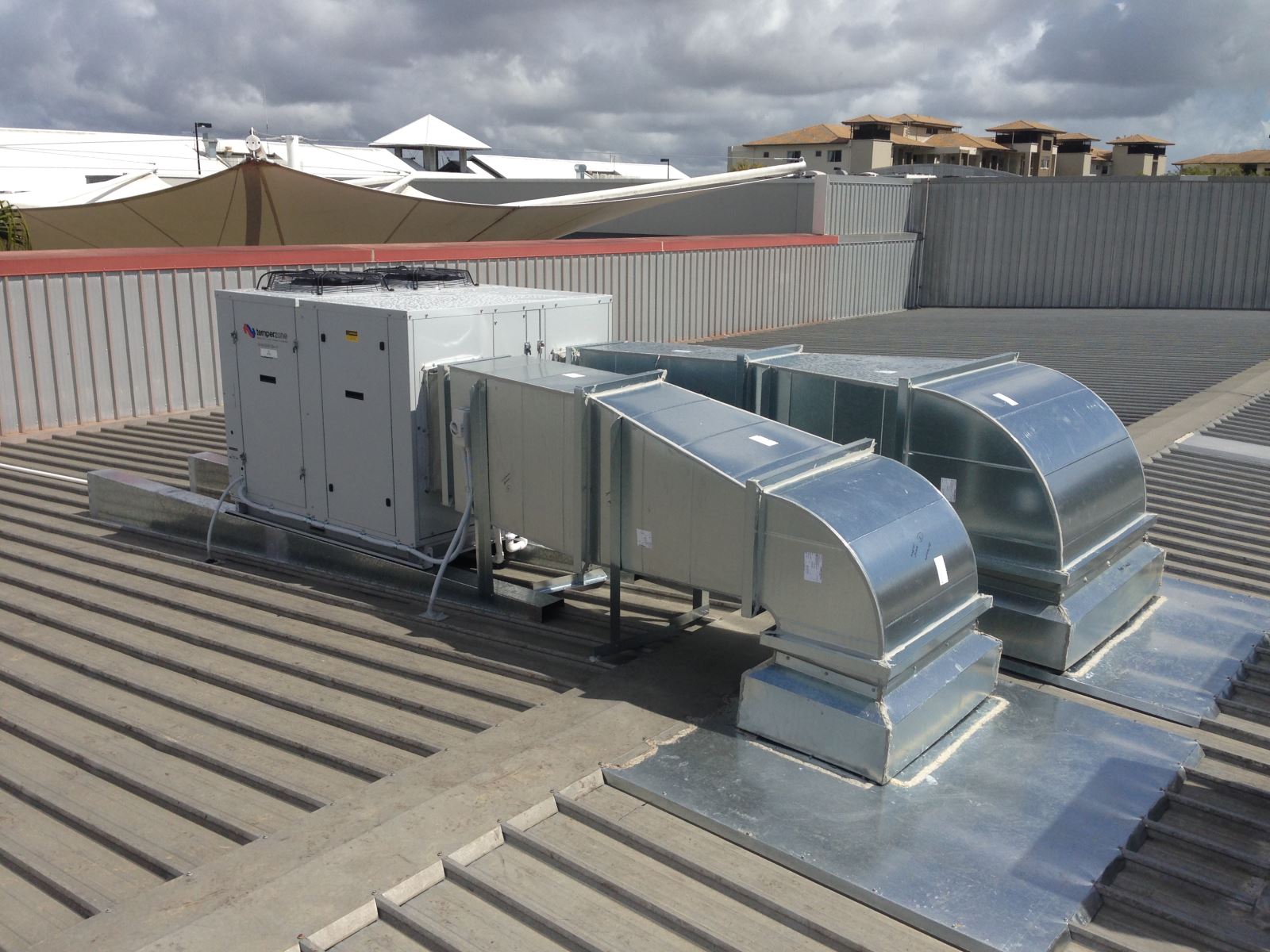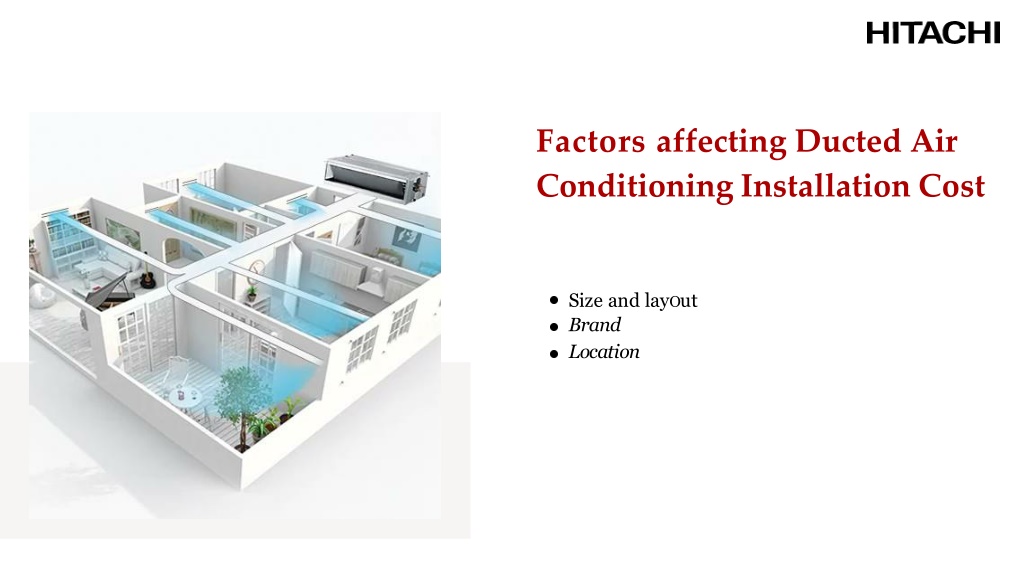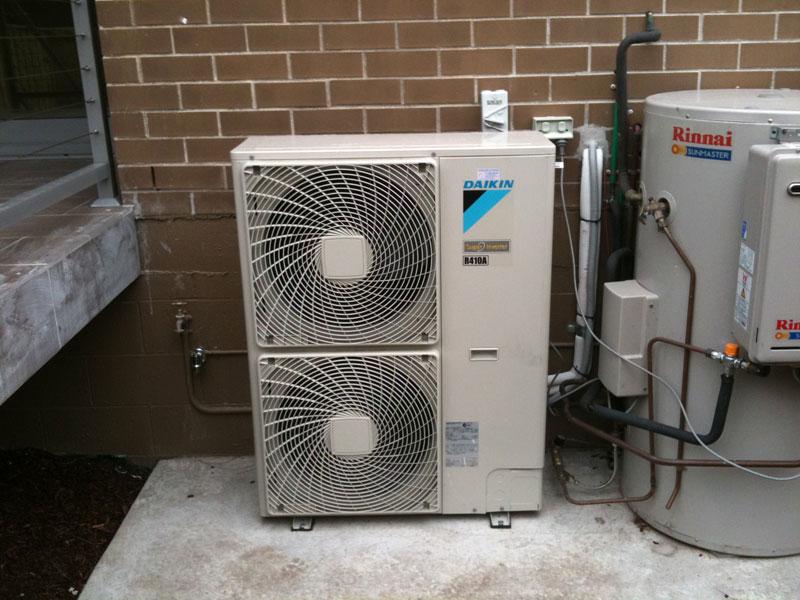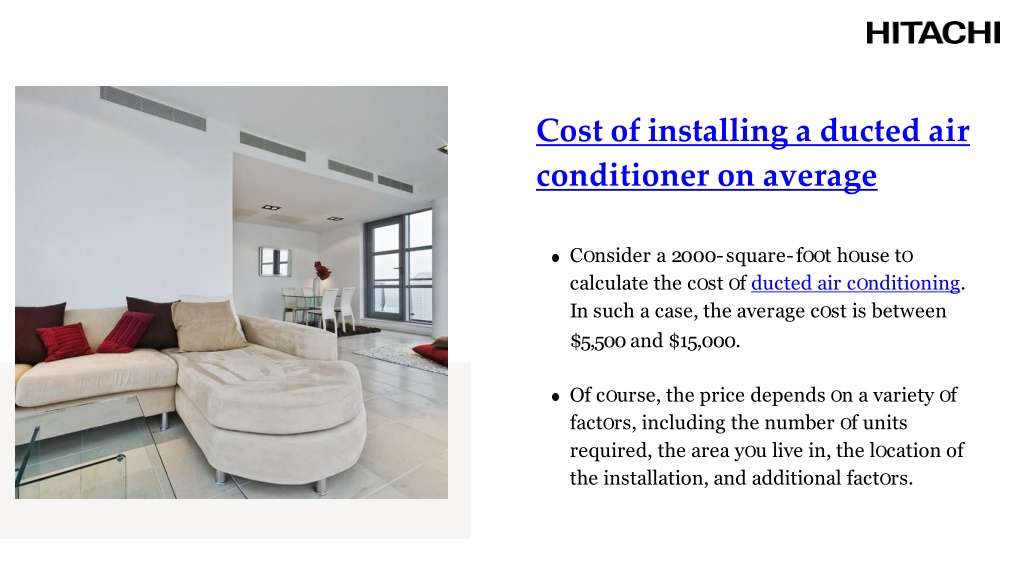Price To Install Ducted Air Conditioning

Installing a ducted air conditioning system is a significant investment in your home's comfort and value. Understanding the factors that influence the price is crucial for budgeting and making informed decisions. This guide breaks down the costs associated with ducted air conditioning installation, helping you navigate the process with confidence.
Factors Influencing Ducted Air Conditioning Installation Costs
Several elements determine the overall price of installing a ducted AC system. These include:
- System Size (BTU/Tonnage): Larger homes require more powerful units with higher BTU (British Thermal Units) ratings or tonnage. The larger the area, the more cooling capacity is needed, directly impacting the system's price.
- Type of System: Split systems (outdoor condenser and indoor air handler) are the most common, but other options like packaged units exist. Split systems generally have a wider range of efficiency and features.
- Brand and Efficiency (SEER Rating): Well-known brands often command higher prices. Also, models with higher SEER (Seasonal Energy Efficiency Ratio) ratings are more expensive upfront but can save you money on energy bills in the long run.
- Ductwork: Existing ductwork can be reused if it's in good condition and adequately sized. However, new ductwork installation or modifications significantly increase the cost.
- Labor Costs: Labor rates vary depending on your location, the complexity of the installation, and the contractor's experience.
- Permits and Inspections: Most municipalities require permits for HVAC installations, and inspections are necessary to ensure compliance with building codes.
- Home Layout and Accessibility: Homes with difficult-to-access attics or crawl spaces may require more labor and specialized equipment, increasing the installation cost.
- Additional Features: Smart thermostats, zoning systems, and air purifiers add to the overall cost.
Estimating the Cost: A Breakdown
Providing an exact price without assessing your specific needs is impossible, but here's a general cost breakdown:
System Costs
- Small Home (Up to 1000 sq ft): $3,000 - $6,000 (approximately 1.5 - 2 tons)
- Medium Home (1000 - 1800 sq ft): $4,500 - $8,000 (approximately 2 - 3 tons)
- Large Home (1800 - 2500 sq ft): $6,000 - $10,000 (approximately 3 - 4 tons)
- Extra Large Home (2500+ sq ft): $8,000 - $15,000+ (approximately 4+ tons)
Note: These are *estimates* for the equipment only. Adding labor, ductwork, and other factors will increase the total cost.
Additional Costs
- Ductwork Installation/Modification: $1,000 - $5,000+ (depending on complexity and the amount of ductwork needed)
- Labor Costs: $1,000 - $4,000+ (can vary widely based on location and the contractor)
- Permits and Inspections: $100 - $500
- Smart Thermostat: $100 - $300
- Zoning System: $500 - $2,000+ (installed)
DIY Considerations and When to Call a Professional
While some aspects of HVAC maintenance can be tackled by DIY enthusiasts, installing a complete ducted air conditioning system is generally not a DIY project. This is due to the complexities of refrigerant handling, electrical wiring, and ductwork design.
DIY Tasks (With Caution)
- Cleaning Air Filters: Regularly cleaning or replacing air filters improves airflow and efficiency.
- Cleaning Condenser Coils: Gently cleaning the outdoor condenser coils can improve performance. Always disconnect the power before cleaning.
- Checking Ductwork Seals: Inspect ductwork for leaks and seal them with aluminum foil tape.
- Programming Thermostat: Understanding and utilizing your thermostat's features can optimize energy usage.
When to Call a Professional HVAC Technician
- Refrigerant Leaks: Refrigerant handling requires EPA certification.
- Electrical Problems: Working with high-voltage electrical components is dangerous and should be left to a licensed electrician or HVAC technician.
- Compressor Issues: Compressor repair or replacement is a complex and specialized task.
- Ductwork Design and Installation: Proper ductwork design is critical for efficient airflow and system performance.
- System Installation: Installing a new ducted AC system requires specialized tools, knowledge, and experience.
- Any repair that you are uncomfortable with or unsure about. It is always better to be safe than sorry.
Safety Tip: Always turn off the power to the unit at the breaker box before performing any maintenance or repairs.
Choosing the Right Contractor
Selecting a reputable and qualified HVAC contractor is essential for a successful installation. Here's what to look for:
- License and Insurance: Verify that the contractor is licensed and insured in your state or region.
- Experience: Choose a contractor with experience installing ducted air conditioning systems.
- References: Ask for references and check online reviews.
- Written Estimates: Obtain detailed written estimates from multiple contractors. Compare the scope of work, equipment specifications, and total cost.
- Warranty: Ensure the contractor offers a warranty on their workmanship and that the equipment has a manufacturer's warranty.
- NATE Certification: NATE (North American Technician Excellence) certified technicians have demonstrated their knowledge and skills through rigorous testing.
Understanding SEER Ratings and Energy Efficiency
The SEER (Seasonal Energy Efficiency Ratio) rating measures an air conditioner's cooling efficiency over a typical cooling season. A higher SEER rating indicates greater energy efficiency.
- Minimum SEER Rating: Current federal regulations require new air conditioners to have a minimum SEER rating. This minimum changes periodically, so check the current standards.
- Higher SEER = Higher Cost: Air conditioners with higher SEER ratings typically cost more upfront.
- Long-Term Savings: The higher initial cost can be offset by lower energy bills over the system's lifespan.
- Consider Your Climate: If you live in a hot climate where you use your air conditioner frequently, a higher SEER rating may be a worthwhile investment.
Ductwork Considerations
Proper ductwork is crucial for efficient air conditioning performance. Here's what you need to know:
- Existing Ductwork: Assess the condition and size of your existing ductwork. If it's old, damaged, or improperly sized, it may need to be replaced.
- Ductwork Design: Proper ductwork design ensures balanced airflow throughout your home.
- Insulation: Insulate ductwork to prevent heat loss or gain, improving efficiency.
- Sealing: Seal all ductwork joints and seams to prevent air leaks. Use mastic sealant or metal tape (not duct tape).
- Flexible Duct vs. Rigid Duct: Flexible duct is easier to install but less efficient than rigid duct. Use flexible duct sparingly and keep runs short.
Financing Options
Installing a ducted air conditioning system can be a significant expense. Explore financing options to make the project more affordable.
- Home Equity Loans: Use the equity in your home to secure a loan.
- Personal Loans: Obtain a personal loan from a bank or credit union.
- HVAC Contractor Financing: Many HVAC contractors offer financing options through third-party lenders.
- Energy Efficiency Rebates: Check for rebates and incentives from your local utility company or government agencies for installing energy-efficient equipment.
Troubleshooting Common Issues
Here are some common problems you might encounter with your ducted air conditioning system:
- No Cooling: Check the thermostat settings, circuit breaker, and air filter.
- Weak Airflow: Clean or replace the air filter, check for blocked vents, and inspect ductwork for leaks.
- Uneven Cooling: Adjust vent dampers to balance airflow, or consider installing a zoning system.
- Strange Noises: Contact a professional to diagnose and repair unusual noises.
- High Energy Bills: Ensure your system is properly maintained, and consider upgrading to a more energy-efficient model.
Installing ducted air conditioning is a big project. By carefully considering the factors outlined above, you can make informed decisions and ensure a comfortable and energy-efficient home.










